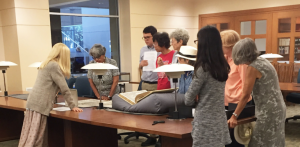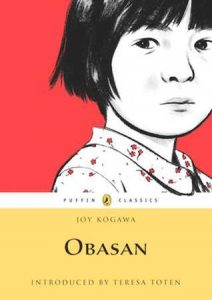Most people put little to no thought into how the goods/services they utilize on a day to day basis come to be. Whether that is the labor of food service workers who make our meals, or the washing of public bathrooms by building management employees, there are many people working hard every day so that we can enjoy the small luxuries in our lives. While we all are subconsciously aware that this work is being done, it’s essentially invisible labor most of the time.
Similarly, the process of writing, especially extended pieces such as novels, is often seen as invisible labor by the average reader. When you pick up a book in a library, you don’t think of the potential years the author spent to get their stories and thoughts into a compact, sellable product. I recently got the chance to take a peek into this process through my university literature class.
We recently took a small field trip to the Rare Books and Special Collections (RBSC) section of the Irving K. Barber Library to learn about the process Joy Kogawa went through while writing her novel Obasan. While at this extremely unique exhibit, we were given access to countless documents Kogawa used throughout her creative process, including some of her original storyboard notes, alternative drafts of chapters, and free writing from when she had writer’s block.

A tour group at RBSC. Image from http://about.library.ubc.ca/2016/08/25/take-a-tour-of-rare-books-and-special-collections-rbsc/
From studying these documents, my perspective on Kogawa and her book was fundamentally changed–I had gained a much deeper understanding as to how much labor went into the book. My partner and I were assigned several pages that were filled entirely with tiny, hard to read notes she wrote, attempting to create an outline for the basic storyline. We could see where she crossed things out and how her overall thought process went. It was far from simple and I struggled a lot to follow her train of thought.

Cover of Obasan. Image from https://www.goodreads.com/book/show/9723.Obasan
Throughout my schooling experience, I have been assigned countless books to read, and they often feel like a major burden. The last thing I want to do is spend countless hours of my life reading something I am not particularly interested in. However, reading through Kogawa’s notes helped me truly appreciate all the work and effort that goes into writing a book, and it made me feel a bit bad for always resenting my teachers. It was especially touching, as this was a very personal matter to Kogawa. In one of her free writes which we also received, she described how intensely painful it was for her to go through this process of repeated remembering of trauma. Even though she still fully had all the memories, she had to work with them repeatedly and constantly be reminded of the hardships of her life. This really spoke to me and made me appreciate her process on a deeper level.